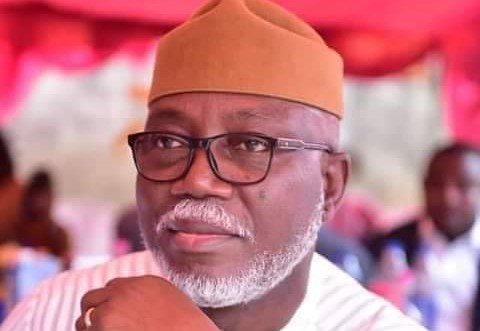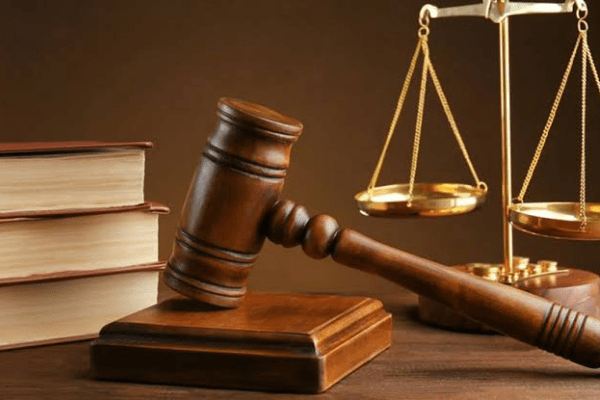By Ayo Akinyemi
The emergence of Professor Yemi Osinbajo in the orbit of 2023 presidential aspirants has been like a volcanic eruption in the nation’s political landscape. It has caused upset in some camps and unsettled some other aspirants.
It has changed the dynamics in the political circle since the morning of Monday, April 11, 2022 when he publicly declared his interest in the contest for the 2023 race to Aso Rock.Wondering why the Vice President (PYO) has been the issue in the last couple of weeks? Simple answer: He stands out of the pack like a rose among green vegetables. Although of moderate stature, he is a giant in intellect, comportment, carriage, disposition, exposure and integrity. Above all, remarkably, he is the current Vice President of the Federal Republic of Nigeria – a position he has creditably held for almost seven years without rancour, with absolute loyalty to his boss, President Muhammadu Buhari in the service of the nation and the people of Nigeria.
Unlike what obtained between Alhaji Atiku Abubakar, when he was vice president, and his boss, President Olusegun Obasanjo, during the years of their second term in office, PYO still enjoy the confidence of PMB, his boss, to date.
Expectedly, the well-crafted 29-paragraph Declaration of Interest Speech of PYO, which also contained highlight of what could pass as paraphrase of his manifesto, has been a talking-point, attracting varying reactions, criticisms of different shades and colour. Detractors, supporters and sympathisers of other aspirants, have variously been picking holes in his submissions in the speech. Some are piqued by his description of President Muhammadu Buhari as “a true Nigerian patriot, a servant of the nation in war and peace, and a man of integrity”, whom he had worked with in the last seven years. Some have wondered what the Buhari administration has put on ground that he (PYO) intends to build on, as stated in his declaration: “If by the grace of God, and the will of the people, I am given the opportunity, then I believe that first, we must complete what we have started.”
What one finds most intriguing is the blind condemnation of the seeming or perceived placid disposition of PYO to the policies of government, of which he is a part, and the attendant socio-political problems believably impacting negatively on the people. A cool, calm, calculating, reasonable, level-headed, vibrant legal mind that PYO is, with benefit of history and native intelligence, could not have done otherwise.
He has a guide, among other factors, the declaratory pronouncement of the Supreme Court in the case: A.G. Federation v.Abubakar (2007) 10 NWLR (Pt.1041)1, that the vice president, as a member of the president’s team cannot criticise the policies and actions of the government openly.Chief Afe Babalola, SAN, handled the brief on behalf of the Attorney General of the Federation.
The legal luminary recounted the Supreme Court judgement in his autobiography: Impossibility Made Possible. An excerpt from the book reads: “It is not intended to suggest that the union (between the president and vice president) demands of the vice that he should be a slave to the president, with no will or opinion of his own, it does not submerge his personality or individuality in that of the President or make them two-in-one…As the president’s chief adviser, it is his prerogative and duty to discuss freely with him the policies and actions of the government, to point out any defects or errors in them, and the dangers to which they may expose the government.
Nevertheless, having done this, the principle of collective responsibility binds him to all government decisions and actions, whether they emanated from the president alone or from the Executive Council.“So long as he remains in office as vice president, he is not free to oppose in public, decisions or actions of the president or the Executive Council, no matter that he personally disagrees with them. His freedom to disagree and to criticise can only be exercised privately in a meeting with the president alone or in the Executive Council. Freedom on the part of a vice president to criticise his president publicly for mismanagement or corruption is certainly not consistent with the loyalty required of him as a member of the president’s team.”
The import of Yoruba aphorism: A F’ogbon Ologbon S’ogbon L’ogbon… Eni T’ojin Si K’oto, Ko Awon T’oku L’ogbon – Wiser is he who learns from the causation of the pitfall of others than he who fell victim before learning his lesson – was not lost on calm, cool-headed PYO, guided by the ethos of omoluwabi – one well brought up.
In the first three years (1999-2002) of his administration, President Olusegun Obasanjo had huge confidence in his Number Two, Alhaji Atiku Abubakar, and gave so much responsibilities to him. Things were smooth-sailing between the two until a subterranean campaign of Mandela Option of One-Term for OBJ, allegedly fuelled by the vice president, oozed out in the approach of the national convention of the ruling party. It took a lot of horse-trading, persuasion and pacification to get Atiku to douse the tension for President Obasanjo to secure the ticket for second-term mandate in Aso Rock in 2003. Thereafter, it was however a cautious, consciously tactically moderated relationship with the vice president. Atiku was choked up and effectively shrinked, cut to size, with insignificant responsibility assigned to him.An uncomfortable vice president, now like fish out of water, in search of fresh air and avenue to actualise his presidential ambition, defected to the Action Congress for a presidential ticket in the 2007 election, while still in office as vice president.
The development led to a chain of actions that progressively culminated in the Supreme Court judgement recounted earlier. Had Atiku not be driven by inordinate ambition, had he allowed the harmonious relationship that existed between him and his boss in the early years of the administration to flourish, he would have had an automatic ticket to succeed President Obasanjo in 2007.
His boss would have felt comfortable enough to hand over power to him, ensured smooth transition, seamless continuity and sustained stability.
Atiku lost the golden chance to impatience and vaulting ambition. He has since been desperately and vehemently pursuing the golden presidential diadem, jumping from one political party to the other. He now has the label of serial presidential candidate/aspirant. He is also currently in the race for the 2023 ticket. The scenario reminded one of the moonlight tale of the gorilla that was to transform to a human being.
The oracle asked the gorilla to exercise patience for seven days for the process to have features of human being to mature. On the sixth day, the restless, impatient, over-ambitious gorilla headed for the market place singing: Iwoyi Ola Ma D’eniyan… (by this time tomorrow, I shall have features of a human being). A misadventure. The glorious day never came. The rest is history.
The estranged relationship, that prevented a smooth transfer of power by President Obasanjo to Vice President Atiku in 2007, changed the trajectory of the country’s polity and politics. The resultant gravitations brought us to this pass. The narrative would have been different from what had obtained since 2007, if the vice president had kept his cool. We definitely would not have been where we are today. The story would have been different. In 2002 a Vice President Atiku Abubakar chose to rock the boat with his boss. Twenty years after – 2022 – there is a cool-headed Vice President Yemi Osinbajo, keeping the boat steady and afloat with his boss to maintain the stability of the polity.Nigeria and Nigerians are on the march again, for the race for a Mr. President. Sadly, of concern, it seems to have become a race for all-comers of all sorts. But, in the midst of the mix, there is a man on the block who stands shoulders high.
For seven unbroken years, Professor Yemi Osinbajo, SAN, has been the vice president, learning the ropes. He has painstakingly watched from inside and from the sidelines, workings and proceedings in the highest echelon of power in the land. He knows which Ts to cross, the loopholes to block, the rough edges to smoothen, the policies to finetune, the ones to consolidate. He would not have to beat about the bush. No trial and error.In a Yoruba adage: Okunkun Ile Eni Kii Soro Fun Ni Lati Rin. Literally: It is never difficult for one to navigate through the dark in one’s home.
The geography of the setting of the home is already engraved in the mind and head. PYO will hit the ground running, if, by the grace of God, and the will of the people, he is given the opportunity to be in the Aso Rock Presidential Villa in 2023. None, among the multitude and myriad of aspirants, parades a match for his credentials. I agree in-to-to with his submission in his declaration speech that: “I believe that the very reason why the Almighty God gave me these experiences, these insights, and these opportunities, is that they must be put to the use of our country and its great peoples.”
My fear.The bane, over the years is that politics and elections in Nigeria have never thrown up the best, especially, for the office of president. It is even on record, a General Olusegun Obasanjo, as military head of state, on the eve of the 1979 presidential election, reportedly said the best candidate may not necessarily win an election.
We need to put an end to this vicious cycle for the good of all. B’omo Eni Ba Dara Ka Wi… If one’s child is beautiful, there is no harm acknowledging and trumpeting the divine blessing and favour. This PYO, is good. He has all it takes to turn things around for the good of all.
Akinyemi, a political analyst, wrote from Abuja





